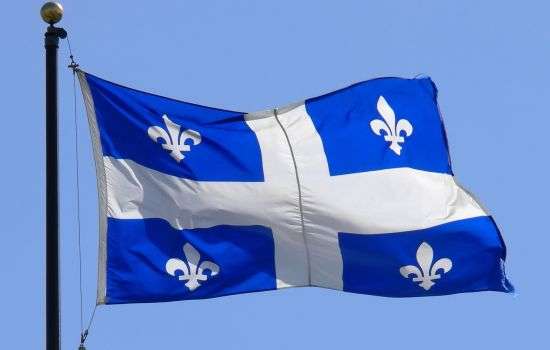Québec Begins Attempt to Blacklist 2,200 Online Gambling Websites
Québec’s government-run lottery agency, Loto-Québec, is forging ahead with a plan to blacklist roughly 2,200 online-gambling sites following last week’s passage of the controversial Bill 74, which authorizes the state-run lottery to compile such a blacklist and to assess heavy fines against the province’s internet service providers [ISPs] in case of noncompliance.
 The province’s censorship plan, which has been heavily assailed as being unconstitutional and in direct violation of Canada’s federal communications laws, is likely to face stiff legal challenges in the coming weeks and months. Bill 74, which is actually Québec’s omnibus budget legislation, proved to be the vehicle through which Québec’s lottery forced through the changes it desired — a possible way to eradicate what it views as black-market competition.
The province’s censorship plan, which has been heavily assailed as being unconstitutional and in direct violation of Canada’s federal communications laws, is likely to face stiff legal challenges in the coming weeks and months. Bill 74, which is actually Québec’s omnibus budget legislation, proved to be the vehicle through which Québec’s lottery forced through the changes it desired — a possible way to eradicate what it views as black-market competition.
Whether a blacklist will be delivered by Loto-Québec to the province’s ISPs in June, with an accompanying order to enforce the new law, remains uncertain. Loto-Québec is early in a 30-day period in which it is mandated to draw up the blacklist’s targets, meaning that attempted domain blocking won’t begin, at the earliest, until the latter half of June.
Loto-Quebec officials and their provincial legislative supporters have continued to pooh-pooh statements from federal Canadian officials regarding the blacklist’s likely illegality, asserting that the blacklisting needs to be done as a “public health” service for Québec’ citizens. Of course, Loto-Québec hopes to get healthier as well… financially, that is. Loto-Québec openly admits that this is all about the dollars; as of now, the official Québec lottery is estimated to have only 10% of the province’s “real” online-gambling market, and the lottery is willing to go the “Great Firewall of China” route to get the remaining 90% and thus the online monopoly it craves.
Right now, the official Espacejeux.com site run by Loto-Québec grosses only about $27 million a year, and it’s those dancing dollar signs that have the province willing to move forward in its attempt to violate Canadian federal law.
Loto-Québec has announced its plans to license three online sites, whose branded products would then be incorporated into the Espacejeux.com offerings. Montreal-based Amaya, parent company of PokerStars, is widely expected to receive one of those licenses, if and when they become available.
As for the ISPs who Loto-Québec’ blacklisting plans depend on, there’s no such treasure chest available. Instead, the mandate given is to turn off access to whatever sites and domains Loto-Québec decides are illegal, or face stiff fines. Once the blacklist has been delivered, Québec’s ISPs will have another 30 days to ensure compliance, or else face $100,000 fines, per occurrence. Expect legal challenges to this part of the plan as well, given that the ISPs are essentially being deputized to police an unfunded mandate.
There’s also a practicality question to consider. Several European countries quietly tried such blacklists last decade, and they were wholly unsuccessful. The targeted companies switched their online homes to new virtual addresses, making the blacklist’s data obsolete almost as soon as it was published, and did it over and over again each time the lists were updated, making it an online game of whack-a-mole.
Another source of challenge may come from the Kahnawake Reserve, just outside Montreal, where the Kahnawake Gaming Commission and Mohawk Internet Technologies combine to host and offer a regulatory shield of sorts for dozens (if not hundreds) of the very sites that Loto-Québec seeks to target. One very likely scenario is that the Kahnawake nation will seek to block Loto-Québec’s plans in the courts, and some Canadian observers have even suggested that the conflict could turn physical, resulting in something resembling a recurrence of the 1990 Oka Standoff, which pitted armed Kahnawake resistance, manning blockades at the reserve’s borders, against a possible use of force by provincial and national authorities.
The Kahnawake nation has long asserted its rights to offer online gaming services, and though both Québec and federal Canadian officials have decried the Kahnawake operation as illegal, those officials haven’t moved to stop it. The Kahnawakes have been running their highly profitable hosting service since 1999, and have repeatedly vowed to aggressively defend those operations.
This just touches on some of the largest question marks facing Québec’s online-gambling plans. There are others as well, making the whole scheme a giant question mark that’s as likely as not to be scuttled or legally blocked before it ever goes into effect. That fight, however, remains to be seen. Read more about Canadian online poker here.




















COMMENTS